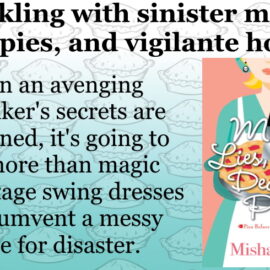This is the seventh post in the “How To Break Into Publishing” Series. If you’re coming in late, Part One: What Even is Publishing? (Different types of publishing) is available here!
You’ve written a book. You got it edited with critique partners. You landed an agent. You found a publisher. You’re on bookshelves everywhere. Now comes the fun part – buying a castle in Scotland and rolling around on fat stacks of cash.
Oh come on now, you’ve stuck with me this long and you still thought it was gonna be that easy?
Caveat: My goal for this blog series is to educate, not discourage. Getting a book published seems so very simple at first glance. It’s really, really not! But when you (like me) would rather be writing than pretty much doing any other thing, it’s worth it. As always, this is based on my limited experience and limited understanding. Your mileage may vary!
One more caveat: Money is a tough subject to talk about, especially since numbers are always a Big Secret. Everything in this blog post is completely hypothetical, theoretical, and based on broad guesstimates. This post is also based on the traditional publishing model and does not apply to self-publishing, which has its own payment model.
Replace all of the furniture in your house with stacks of gold.
I’m actually allergic to gold, and it’s a good thing, too, because in general, writing doesn’t pay very well. Sure, there are your Stephen Kings and she-who-shall-not-be-nameds but they are the exception. Not the rule. In publishing, the AVERAGE advance is around $5,000.
Side note: “Advance” is shorthand for “Advance against royalties.” This is important to understand, because if an author receives a $5,000 advance, and earns $7,000 in royalties, the royalty check is $2,000. If an author sells enough so their royalties equals their advance, this is called “Earning out an advance.” If a book does not earn out (how common is this? I don’t know. Big Secrets and all that) then the author is usually not responsible for returning their advance, but will not receive future royalty checks unless sales improve.
Think about this for a minute.
If the average advance is $5k, then that means that lots of authors – possibly even the majority of authors – are getting a heck of a lot less than that. Many writers get a lot less. Others get much more.
Let’s break this down. Maybe you drafted that book in 6 months, and then edited, re-wrote, and edited some more over the next year. You got lucky and found an agent in 3 months. You went out on sub and your book got snatched up in 3 months. It took 6 months to write a contract and then you got paid! In this scenario you started writing this book 2 1/2 years before you ever got paid, and even then, there’s a fee breakdown structure. Most contracts stipulate a 3-5 payment breakdown. For example, a 5 payment breakdown might be 20% on signing, 20% on delivery, 20% on edit completion, 20% on pub, and 20% 6 -12 months after pub. You’ve got an agent so they get their 15% so your first check, before taxes, is about 17% of your advance. Depending on where you live, you’ll be expected to pay taxes on your advance. Unless you’re really good with tax law, you’ll probably want to hire an accountant. They will likely advise you to set aside up to 40%-50% for taxes.
Over the next 18-(more likely) 24 months, your book will go through the publishing process. You’re on bookshelves! 6 months after that, you get your final advance payment (if you’re on a 5-payment fee structure. Publishing houses and contracts vary). 6 months after that, depending on your sales and your advance, you might start to see royalty payments.
And now it’s time for another hard truth. On AVERAGE, books sell around 1,000 copies each. Now this number will vary wildly. Some books sell millions. Others sell 2 copies. 1,000 is only an average. Sales numbers are another closely guarded secret.
In a perfect world, your advance should equate to sales. If your publishing house expects you to sell X copies in the first year, in theory, they might offer you a $Y advance. In reality, it rarely works like that. All sorts of factors can drive up (or down) sales and advances.
In any event, it took you 2 1/2 years to write and sell your book. It was another 2 years until your book was available in bookstores, and 6 months after that, you got your final advance payment. Minus your agent fees and taxes, and you’re left with 40% of your advance, give or take. For five years of work. Out of that comes any expenses, from mailing out swag to renting out office space or going to conferences or on a writing retreat so you can get some peace and quiet to actually write. Even with an enormous advance, this doesn’t equate to much.
But you have a book.
What I’m really trying to say here is that writing isn’t a get-rich-quick scheme. It’s not even a get rich scheme. That’s not saying that you can’t make a good living – you can! If you can sell multiple books on a contract (the example above is a single book), and multiple contracts back-to-back, you can make a career out of it, or at least a productive side hustle.
You can get a small advance and sell a gazillion copies of your book, resulting in big, fat royalty checks every six months. You could self-publish, get zero advance, and spend money out of pocket for editing, formatting, and marketing. The example above assumes that you write one book and see it traditionally published over the course of years, but in reality you’re hopefully writing multiple books and the one-time-payment model becomes a cycle and you’re making a steady income.
When you get that first offer, you just might want to hold off on setting up that appointment for a plumber to install gold bidets in your house. But I highly recommend that you do install a new bookshelf because you’re going to need it to hold all of your new books!
Thank you for joining us for this series, which concludes with this blog. I hope that this series gave you some new insight into the business of publishing. ICYMI (In case you missed it), the rest of this series, How To Break Into Publishing can be found:
- Part One: What Even is Publishing? (Different types of publishing)
- Part Two: You Are What You Read (Catching up with genre trends)
- Part Three: Wait, I Have to Actually Write This? (Spoiler: You do)
- Part Four: Let’s Get Critical (Critique Partners, Beta Readers, Ghost Readers, and Editors)
- Part Five: Misery Loves Company (So find yourself some!)
- Part Six: Get Down To Business (Getting an agent and a publishing contract)
- Part Seven: Party Hard, You’ve Made It! (The cold hard checkbook)
Other articles about the publishing process:
- How Can I Get Published? A guide to demystify the process and provide you with resources – by Penguin Random House



